by rbartels | Jun 30, 2022 | Funding Success
In Feb 2022, Lauren Smith and Amanda Roberts (along with colleagues from the School of Health and Social Care and a colleague from the School of Architecture) were awarded £10,000 from The Tudor Trust and developmentplus.
The funding will be used to complete a review of potential venues for ongoing delivery of Project Compass, providing support to people who are homeless in Lincoln City.
by rbartels | Jun 30, 2022 | Publications
Amanda Roberts, along with many other researchers, have published a paper entitled ‘Gambling disorder in the UK: key research priorities and the urgent need for independent research funding‘ in The Lancet Psychiatry. Summary of the paper is below:
Summary
Gambling in the modern era is pervasive owing to the variety of gambling opportunities available, including those that use technology (eg, online applications on smartphones). Although many people gamble recreationally without undue negative effects, a sizeable subset of individuals develop disordered gambling, which is associated with marked functional impairment including other mental health problems, relationship problems, bankruptcy, suicidality, and criminality. The National UK Research Network for Behavioural Addictions (NUK-BA) was established to promote understanding of, research into, and treatments for behavioural addictions including gambling disorder, which is the only formally recognised behavioural addiction. In this Health Policy paper, we outline the status of research and treatment for disordered gambling in the UK (including funding issues) and key research that should be conducted to establish the magnitude of the problem, vulnerability and resilience factors, the underlying neurobiology, long-term consequences, and treatment opportunities. In particular, we emphasise the need to: (1) conduct independent longitudinal research into the prevalence of disordered gambling (including gambling disorder and at-risk gambling), and gambling harms, including in vulnerable and minoritised groups; (2) select and refine the most suitable pragmatic measurement tools; (3) identify predictors (eg, vulnerability and resilience markers) of disordered gambling in people who gamble recreationally, including in vulnerable and minoritised groups; (4) conduct randomised controlled trials on psychological interventions and pharmacotherapy for gambling disorder; (5) improve understanding of the neurobiological basis of gambling disorder, including impulsivity and compulsivity, genetics, and biomarkers; and (6) develop clinical guidelines based on the best contemporary research evidence to guide effective clinical interventions. We also highlight the need to consider what can be learnt from approaches towards mitigating gambling-related harm in other countries.
by rbartels | Jun 30, 2022 | Funding Success
In Feb 2022, Amanda Roberts, alongside Darren Christensen (University of Lethbridge, Canada ) and Dr Nigel Turner (Centre for Addiction and Mental Health at the University of Toronto), were successful in gaining a $25,000 grant from the Gambling Research Exchange Ontario (GREO).
The funding is being used for the following project “Investigating positive play using OLG player survey data: A secondary analysis”.
by rbartels | Jun 30, 2022 | Other
Amanda has also been nominated as Co-Chair at the GREO (Gambling Research Exchange Ontario) Academic Forum for the Study of Gambling (AFSG) alongside Jim Rogers in the School of Health and Social Care.
The forum provides a coordinated voice of independent researchers in the UK to advance the research needed to effectively prevent, reduce, and address gambling harm.
by rbartels | Jun 30, 2022 | Conferences / Events
On 21st Jan (2022), Ross Bartels gave a presentation about his new chapter at the online launch of the new book in which it is published (‘Challenges in the Management of People Convicted of a Sexual Offence: A Way Forward’, Uzieblo et al., 2022).
Ross’ chapter is entitled “Understanding Sexual Fantasising: Implications for Forensic Practice and Research”
